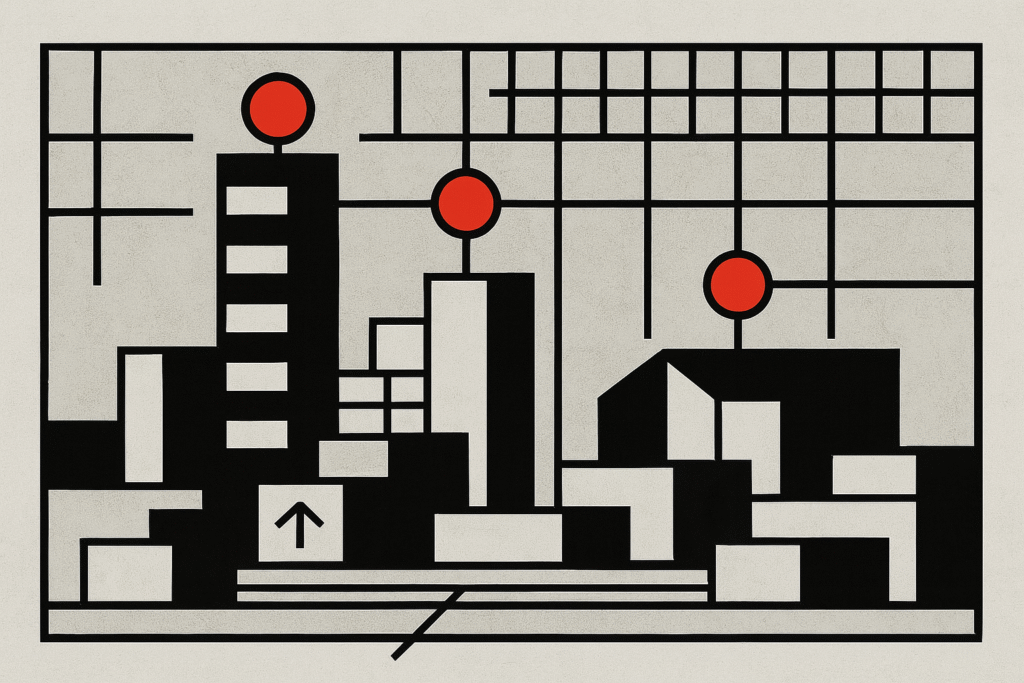A stark, functional style rooted in mid-20th-century architecture that embraces raw structure and minimal decoration.
🧭 Origin
Brutalism originated in mid-20th-century architecture, rooted in post-war reconstruction and socialist ideals. In visual design, it evolved into a stark, functional style that embraces harsh contrast, minimal decoration, and raw structure — both in buildings and in graphic form.
💡 Inspirations
Draws from concrete architecture, utilitarian layouts, Soviet modernism, early web design, and anti-aesthetic web activism. Inspired by clarity over beauty, it often rejects polish in favor of raw legibility and control.
🎨 Color Palette
Industrial, monochrome, and unpolished — with rare flashes of harsh accent (cement grey, pure black, stark white, emergency red)
🖌️ Texture / Technique
Flat, unstyled textures or bare vector surfaces. Surfaces may appear cold or unfinished, with intentional grid exposure, broken alignments, or no hierarchy. In architecture, exposed concrete and structural elements are defining traits.
🌀 Shapes & Forms
Blocky, grid-heavy, often asymmetrical. Typography is raw, monospace, or oversized. Visuals lean into utility: icons, arrows, system diagrams, black bars, and bold sections dominate.
🌙 Mood / Atmosphere
Cold, functional, uncompromising. Brutalism evokes order, control, and sometimes tension — it’s not meant to comfort but to confront.
🧩 Possible Applications
Great for edgy web design, anti-design posters, underground publications, critical art, or architecture-inspired visuals. Used in digital art, UX experiments, and protest branding.
🧠 Generative Potential
AI excels with prompts such as “brutalist layout with grid-based structure, large black text, concrete background.” Ideal for anti-design, UI experiments, or protest aesthetics. Embrace utility, contrast, and typographic rawness.
💬 Prompt Example
“A brutalist poster layout with oversized black text, rigid grid, concrete grey background, red warning accents, no decoration, raw system design elements and cold utilitarian structure.”
